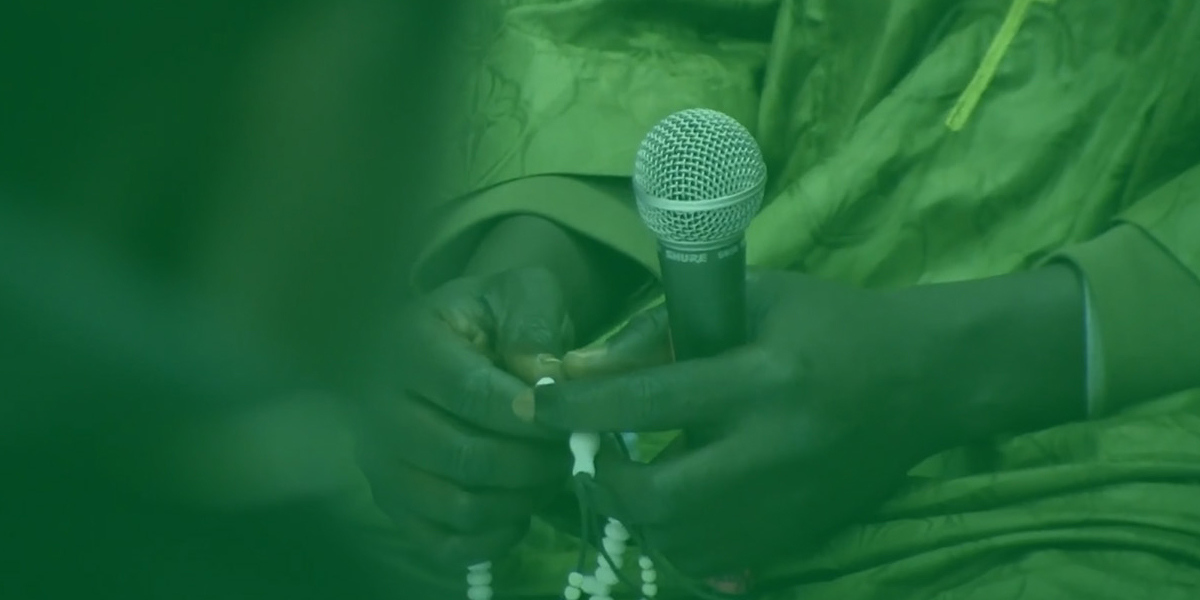Series of lectures: Our ‘Distant’ Neighbours
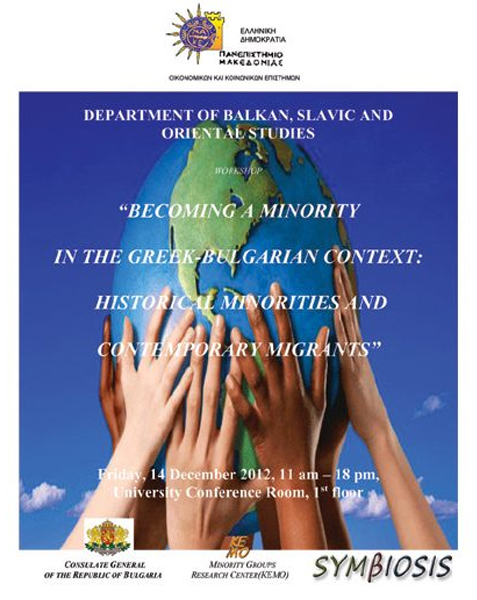
Becoming a minority in the Greek-Bulgarian context: Historical minorities and contemporary migrants
On 14 December 2012, the Department for Balkan, Slavic and Oriental Studies at the University of Macedonia, Symβiosis, the Minority Groups Research Center, and the Consulate General of Bulgaria, organized a workshop that aimed to change the meaning of the concept ‘minority’. It unpacked the process of minorizization in the contemporary Greek-Bulgarian context and considered the conceptual clarification of the notion of ‘minority’ using specific historical examples, an analysis of the contemporary framework, and a reconsideration of the contribution of new actors, such as NGO’s that engage in the protection and monitoring of minority and refugee rights as watchdogs of states, research and activists centres.
The discussion included perspectives from different disciplines, including social and political science, law, anthropology, documentary and film production.
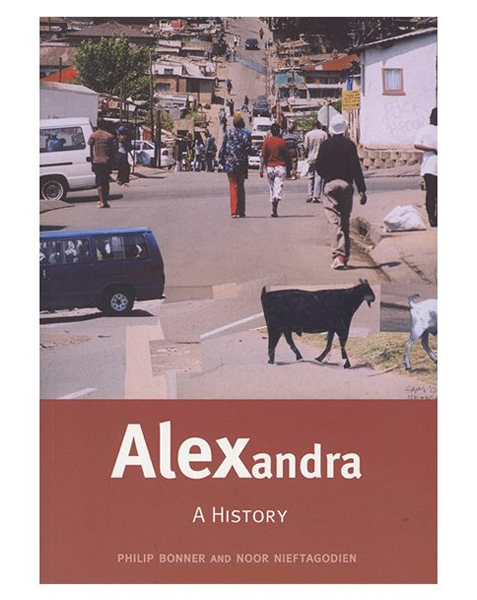
African cities, post colonialism, memory and migration: the case of Alexandra in South Africa
As part of the Our ‘Distant’ Neighbours lecture series, historian Noor Nieftagodien (the University of Witwatersrand, South Africa) delivered a lecture entitled African cities, postcolonialism, memory and migration: the case of Alexandra in South Africa, which was organised by the Department of Balkan, Slavic and Oriental Studies at the University of Macedonia on March 8, 2012.
Professor Noor Nieftagodien is the head of the History Department at the University of the Witwatersrand. He lectures on urban history and the Middle East and is a Senior Researcher under the NRF Chair on Local Histories, Present Realities. His research includes works on popular movements, liberation history, xenophobia, memory, squatter movements, the construction of townships, and the history of Alexandra, Kathorus, Ekurhuleni and Orlando West. Professor Nieftagodien is a current board member of the South African History Archives and a former board member of the South African Democracy Education Trust. His current research projects include a history of the Vaal Triangle, and the production of contentious spaces and popular movements. He is also involved in several local public history projects.
Other Events
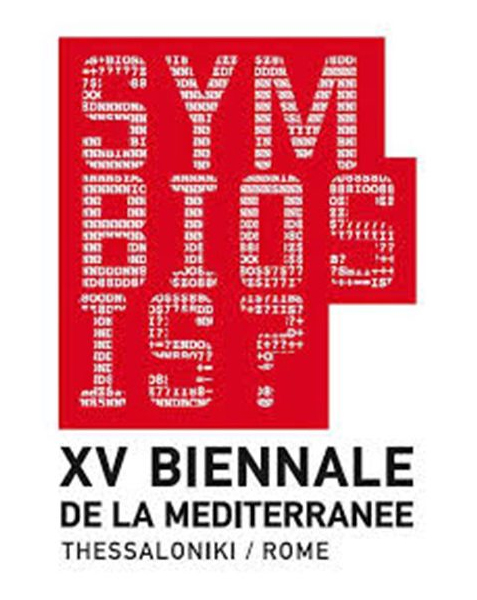
Participation in the Fifteenth Biennale of Young Artists from Europe and the Mediterranean October
In the context of the XV Biennale de la Méditerranée, Symβiosis offered a Painting Workshop during October 2011
The workshop examined the ways migrants’ and minorities’ artistic creations were inspired by their experience of migration and/or discrimination, and how such experiences could, in turn, facilitate, and allow for migrants to contribute to practices as dynamic social actors (educators, students), and not solely as objects of instruction or research.
The workshop also explored the potential of migrants in building bridges and facilitating the encounters between different populations sharing the same neighbourhood. In particular, it highlighted popular and creative arts as a vehicle of fostering communication and dialogue between different groups sharing the same culture and neighbourhood.
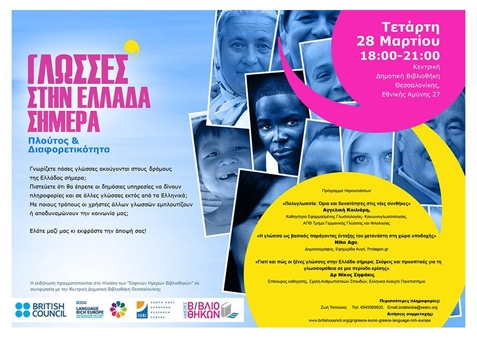
Languages in Greece today: Richness and diversity
How do languages enrich our society? How many languages are heard in the streets?
These are some of the questions that the seminar Languages in Greece Today aimed to respond to, leading a dialogue with lead academics, journalists and participants.
The seminar was held at the Municipal Library of Thessaloniki on 28 March 2012, and it was organized by the British Council at the Municipal Library of Thessaloniki as part of Language Rich Europe project.

